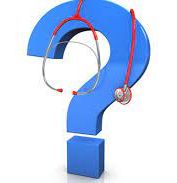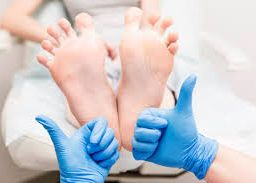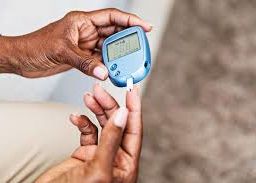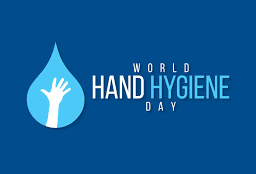
How Hormonal Changes Contribute to Postpartum Depression Symptoms
Postpartum depression symptoms can be challenging to navigate for new mothers. As many embrace the joys of motherhood, understanding and identifying the signs of PPD becomes crucial. Delving into this topic, we shed light on the common symptoms, causes, and the importance of timely intervention for affected mothers.

Welcoming a new life into the world is a joyous occasion, but for some, the postpartum period can bring about unexpected challenges. Postpartum depression (PPD) is a condition that affects a significant number of new mothers, and understanding it is crucial for providing support and empathy. Becoming a parent is often considered one of life’s most beautiful and transformative experiences. The joy of welcoming a new life into the world is unparalleled. However, for some, this journey can be fraught with emotional challenges, and postpartum depression is one such hurdle. In this post, we will delve into what postpartum depression is, its common symptoms, potential causes, and strategies for coping with this condition.
 What is Postpartum Depression?
What is Postpartum Depression?
Postpartum depression (PPD) is a type of mood disorder that affects women after childbirth. It is different from the “baby blues,” which are milder and shorter-lasting mood swings that often occur in the days following delivery. PPD, on the other hand, is a more severe and long-lasting form of depression that can persist for weeks or even months after giving birth.
Common Symptoms of Postpartum Depression
Recognizing the signs of PPD is crucial for early intervention and support. Some common symptoms include:
- Persistent sadness, hopelessness, or emptiness.
- Irritability and mood swings.
- Fatigue and a lack of energy.
- Difficulty bonding with the baby.
- Changes in appetite or weight.
- Sleep disturbances, unrelated to the baby’s sleep patterns.
- Feelings of worthlessness or guilt.
- Difficulty concentrating or making decisions.
- Thoughts of self-harm or harming the baby.
Causes of Postpartum Depression
The exact causes of PPD are not fully understood, and it is likely a complex interplay of factors. Some potential contributors include:
- Hormonal changes: The rapid fluctuations in hormones following childbirth can affect mood regulation.
- Biological and genetic factors: A family history of depression or a personal history of mental health issues can increase the risk.
- Emotional and environmental factors: Stressors like a difficult pregnancy, relationship problems, or lack of support can contribute to PPD.
- Changes in identity: The adjustment to a new role as a parent can be overwhelming and challenging.
 Here’s what everyone should know about PPD:
Here’s what everyone should know about PPD:
- It’s More Common Than You Might Think: Postpartum depression is not rare. In fact, it affects approximately 1 in 7 new mothers. It can happen to women from all walks of life, regardless of age, socioeconomic status, or cultural background.
- It’s Not the Same as the “Baby Blues”: The “baby blues” is a milder and shorter-lasting mood disturbance that many new mothers experience shortly after giving birth. PPD, on the other hand, is more severe, longer lasting, and requires treatment.
- It Can Affect Moms and Dads: While PPD is most commonly associated with new mothers, it can also affect fathers and partners. It’s important to recognize that new parents of any gender can experience these challenges.
- The Symptoms Vary: PPD doesn’t always manifest as sadness. It can also include symptoms such as irritability, anxiety, or mood swings. Other signs may include changes in appetite, sleep disturbances, and difficulty bonding with the baby.
- Hormones Play a Role, But It’s Not Just About Hormones: Hormonal fluctuations after childbirth can contribute to PPD, but it’s a complex condition with multifaceted causes, including biological, psychological, and environmental factors.
- Seeking Help Is Essential: If you or someone you know is experiencing symptoms of PPD, it’s crucial to seek help. This can include talking to a healthcare provider, therapist, or support group. Timely intervention can make a significant difference in recovery.
- PPD Affects the Whole Family: PPD can strain relationships, affect the baby’s development, and impact the entire family. Open communication and seeking help together can be key in overcoming these challenges.
- It’s Not a Sign of Weakness: PPD is not a reflection of a person’s character or their abilities as a parent. It’s a medical condition that can be treated successfully with the right support and intervention.
- Recovery Is Possible: With appropriate treatment, many individuals with PPD can and do recover. Treatments may include therapy, medication, lifestyle changes, and support from loved ones.
- Support and Understanding Matter: If someone you know is dealing with PPD, offer support and understanding. Listen without judgment, assist with daily tasks, and encourage them to seek professional help. Your empathy and care can make a significant difference.

 Myths Associated with Postpartum Depression
Myths Associated with Postpartum Depression
Myths and misconceptions about PPD can perpetuate stigma and prevent individuals from seeking the help they need. Let’s debunk some common myths associated with postpartum depression:
Myth 1: Postpartum Depression is Just “Baby Blues”
Fact: While it’s normal for new mothers to experience mood swings and mild sadness shortly after childbirth (commonly known as the “baby blues”), postpartum depression is a distinct and more severe condition. PPD involves persistent and often debilitating symptoms that can last for weeks or months.
Myth 2: Only Weak or Unfit Mothers Get PPD
Fact: Postpartum depression can affect anyone, regardless of their strength, character, or parenting abilities. It is a medical condition, not a reflection of a person’s worth or parenting skills.
Myth 3: PPD Occurs Right After Birth
Fact: PPD can manifest anytime in the first year after childbirth. Symptoms may appear soon after delivery or be delayed, which can make it harder to recognize.
Myth 4: All Mothers with PPD Reject or Neglect Their Babies
Fact: PPD does not necessarily lead to neglect or rejection of the baby. While bonding difficulties can be a symptom, many mothers with PPD continue to care for their infants, often struggling silently.
Myth 5: PPD is Rare
Fact: PPD is not rare. It affects approximately 1 in 7 new mothers, making it quite common. However, due to the stigma and lack of awareness, many cases go undiagnosed and unreported.
Myth 6: PPD Only Affects Mothers
Fact: While PPD is most commonly associated with mothers, it can also affect fathers and partners. The emotional and psychological challenges of becoming a parent can impact anyone involved in the caregiving role.
Myth 7: You Should Be Able to “Snap Out of It”
Fact: PPD is not something you simply will away or overcome with positive thinking. It’s a legitimate medical condition that requires appropriate treatment and support.
Myth 8: PPD Only Requires Medication
Fact: Treatment for PPD can vary. While medication may be part of the treatment plan, therapy, lifestyle changes, and support from loved ones are equally important.
Myth 9: Once You’ve Had PPD, You’ll Always Have It
Fact: PPD is not a life sentence. With proper treatment and support, many individuals fully recover from postpartum depression and go on to lead healthy and fulfilling lives.
Myth 10: Talking About PPD Makes It Worse
Fact: Openly discussing PPD and seeking help is an essential part of the recovery process. It reduces stigma and connects affected individuals with resources and support.
Coping Strategies for Postpartum Depression
- Seek professional help: If you suspect you have PPD, it’s crucial to consult a healthcare provider or a mental health professional. They can provide a diagnosis and treatment options, which may include therapy, medication, or a combination of both.
- Lean on your support system: Share your feelings with your partner, family, and friends. Don’t hesitate to ask for help and accept assistance when it’s offered.
- Self-care: Prioritize self-care by getting enough sleep, eating well, and finding time for activities you enjoy. Taking care of yourself is essential for taking care of your baby.
- Join a support group: Connecting with other parents who are going through or have overcome PPD can be reassuring and provide a sense of community.
- Set realistic expectations: Adjust your expectations and remember that it’s okay to ask for help and not strive for perfection.
Postpartum depression is a challenging and often isolating experience, but it’s essential to remember that you are not alone, and there is help available. With the right support and treatment, you can overcome PPD and embark on a fulfilling parenting journey. It’s essential to dispel these myths surrounding postpartum depression. Increased awareness and accurate information can encourage individuals to seek help, reduce the stigma associated with PPD, and promote a supportive environment for new parents facing this challenge. Don’t hesitate to reach out for assistance and remember that your well-being is vital for both you and your baby.
Disclaimer: The information provided in this content is for general informational purposes only. It is not intended as medical or healthcare advice, diagnosis, or treatment. Always seek the advice of a qualified healthcare professional with any questions you may have regarding a medical condition or healthcare decisions.
















